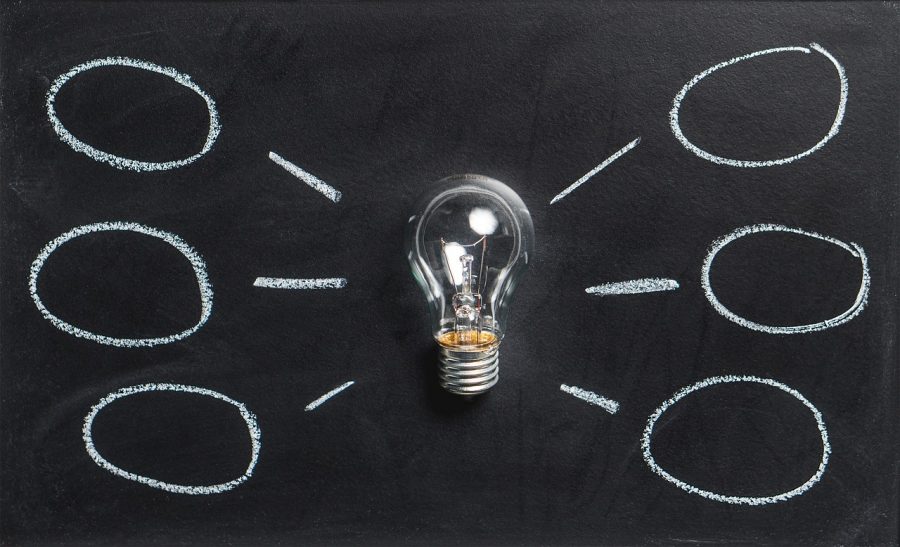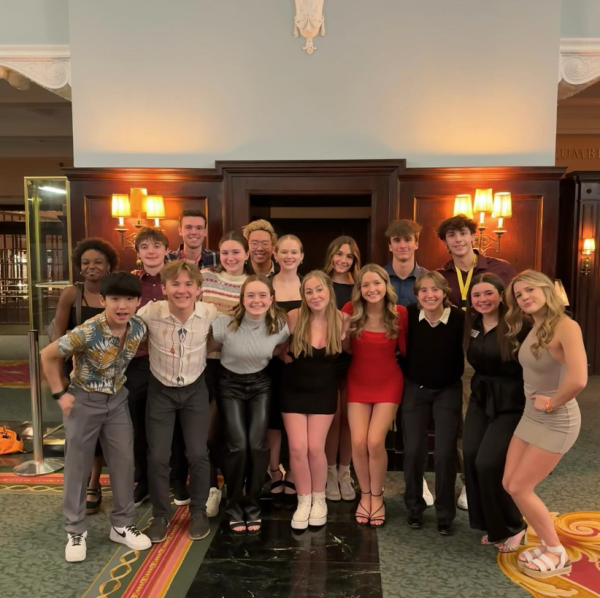Believe It, Or Not?
Conspiracy theories are like a light bulb, it stems from one thing and creates multiple different possible explanations.
NASA’s moon landing, JFK’s assassination, the Illuminati, iPhone cameras, and Chuck-E-Cheese pizza: what do these all have in common? They all have some sort of mind blowing conspiracy theory related to them.
The definition of a conspiracy theory as stated in Dictionary.com is “a theory that rejects the standard explanation for an event and instead credits a covert group or organization with carrying out a secret plot.”
Why are they created and, more importantly, why are people so easily accepting of these insane theories? The reason lies behind psychological evidence that is related to the human mind. People tend to believe in conspiracy theories due to seeing a consistency in views, finding a coping mechanism, or discovering past proven conspiracies.
“I believe in very few conspiracy theories because I do not understand why or how people believe in them so easily. I think it may be because of trends or modern day people’s laziness, but I am curious as to what brings great obsession and trust in crazy sounding explanations,” said Rochester Adams High School teacher Tim Mullins.

The Twin Towers in New York City prior to the attack.
Luckily, this article can answer several suspicions. One of the concrete reasons behind the obsession of conspiracy theories is the viewpoints within them that appeal to the viewer. For instance, if a curious mind is reading into a theory, the individual is more likely to believe it if it stems from the same mindset as his or her own. This can be political, economical, social, or any sort of perspective. Take the conspiracy theory regarding former president Barack Obama’s birthplace as an example. This theory spread like a wildfire during the 2008 Presidential Election. It began with, the current President Donald Trump who claimed that Obama was born outside of the U.S., and would therefore be ineligible to serve as president if found true. With relation to politics, citizens who were republican were easily convinced of this theory as it coincided with their political beliefs. For the most part, most republicans naturally desired to have a President of their same party, and this would work highly in their favor for the election if the theory was proven. On the other hand, the majority of democrats immediately rejected this idea as they wanted Obama as their future President.
“According to University of Chicago political science professors Eric Oliver and Thomas Wood […] 24% believed former president Barack Obama was not born in the United States,” said USA Today writer William Cummings (USA Today).
Considering there was zero evidence at the time to back up this theory, that percentage is very high. There may not be evidence for the theory itself, but there is evidence that people believed in it. People tend to be quick to find answers that matches their own perspective. When asked about the Obama birth certificate conspiracy, Rochester Adams High School senior Jack Bishop’s opinion holds proof that viewpoints can be a factor of believing a theory.
“My family and I are republican. When we first heard about the possibility that Obama might not have been born in the United States, we thought there was a great possibility that it could be true. I think our beliefs played a factor in our opinion of the rumor because since the idea was sided towards republicans’ beliefs, it was easy to believe and we thought it was true at the time,” said Bishop.
Another factor that results in people believing in conspiracy theories is that they can serve as a coping mechanism. When some sort of tragedy or uncomforting event happens, it is a natural desire for humans to seek clarity. Explanations of events in which the cause is unidentified, help relieve the mentality of people as the unknown can be unsettling to most.
For instance, the devastating incident of 9/11 has led to one of the most significant chains of conspiracy theories, which exemplifies the human instinct of craving answers. Following this event, there were questions on questions about what exactly the cause of this crisis was. Although it was stated that it was a terrorist attack, in which three planes were hijacked, two of them being the planes that flew into the Twin Towers, people were still skeptical. So what did they do? They quickly looked for answers that would satisfy their discomfort.
Famous Youtuber Shane Dawson, who is most well known for his insane conspiracy theory video series, elaborated on one of the many conspiracies of 9/11. In his video, “Mind Blowing Conspiracy Theories,” Dawson states,
“9/11 theories are what got me into conspiracy theories […] One of the biggest theories is that it wasn’t just planes flying into the buildings – that there were bombs planted as well. But of course the government said no, no, no it was just the two terrorists in the planes, but some people think that Bush and the government actually coordinated it themselves […] and they wanted both of the buildings to come down,” said Dawson.

Shane Dawson’s Youtube channel.
Even though there is little, and unproven, evidence, it is plenty enough to make someone believe it. The crazy explanations of 9/11, including Dawson’s described theory, goes to show how discomforting, unexplained events can lead people to jump to believing whatever they find reassuring to themselves. When a person feels uneasy, it is a natural instinct for him or her to quickly find meaning because even if it is not true, it puts one’s mind at ease.
Disbelievers of conspiracy theories claim that they contain little-to-no evidence. Although in some cases this may be true, there have been numerous events in history that began as a conspiracy and were later proven to be correct. One of the most notorious instances of this happening was the Watergate scandal. During that time, rumors flew about a break-in including former President Richard Nixon. There were claims that the burglary motive was to steal thousands of dollars and bug into phone lines in order to rig the upcoming election. Nixon continued to deny this illegal action and claim it was a “CIA thing.” Many theories were developed to make sense of this incident, until a suggestion that Nixon was withholding tapes was brought to the court’s attention. Once the tapes were released, the conspiracy theories people thought were flaky or insane proved to be true. In fact, according to psychologist and writer for Live Science Joshua Hart,
“After the Watergate scandal brought down a President for participating in a criminal conspiracy, the American public learned that seemingly outlandish speculation about the machinations of powerful actors is sometimes right on the money,” said Hart (Live Science).
With that being said, the fact that there has been a handful of conspiracy theories proven, like the Watergate scandal, makes people more subject to believe them. If past fictional sounding stories can turn into reality, non-believers are more likely to turn into believers.
Whether people follow conspiracy theories or not, they are all around and always will be. Humans are naturally hooked in not only wanting, but needing answers to ease the mind. From corresponding viewpoints, to coping mechanisms, and to past proven theories, there are significant psychological reasons behind the obsession with conspiracies. Who is to know what will be the next one, and who will believe it? Could this be a conspiracy theory about why people believe in conspiracy theories in which the reader’s mind is getting sucked into right now?







